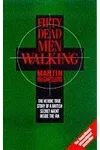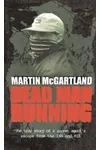Imagine a young man from Belfast, dodging danger in the heart of the Troubles, living a double life that saved dozens of lives—meet Martin McGartland! Born in 1970, this former double agent infiltrated the Provisional Irish Republican Army (IRA) to pass critical intelligence to the British authorities. His thrilling, real-life story of bravery, betrayal, and survival has captivated readers through his gripping autobiographies.
McGartland’s tale isn’t just about espionage; it’s a window into the turbulent world of Northern Ireland’s conflict, where loyalties were tested, and courage came at a steep price. His books, blending raw honesty with heart-pounding suspense, offer a rare glimpse into the life of a man who risked everything to undermine the IRA’s operations.
The Making of Martin McGartland
Growing up in the staunchly republican Ballymurphy estate in West Belfast, McGartland’s childhood was shaped by the escalating Troubles. Born into a Roman Catholic family, he witnessed the IRA’s grip on his community, enforcing their own brutal form of justice. As a teenager, he threw stones at British soldiers and flirted with petty crime, but the IRA’s violent tactics—like kneecappings—pushed him to take a stand. Recruited by the Royal Ulster Constabulary’s Special Branch at 17, he began his covert mission in 1989, codenamed Agent Carol.
His early life wasn’t all danger and intrigue. McGartland showed compassion, befriending a homeless man and delivering milk to make ends meet. These glimpses of humanity grounded him, even as he navigated the high-stakes world of espionage, driven by a desire to save lives and curb the IRA’s reign of terror.
Martin McGartland’s Unforgettable Stories
McGartland’s literary contributions are his two riveting autobiographies, both steeped in the gritty reality of his double life. Fifty Dead Men Walking (1997) is his flagship work, detailing his infiltration of the IRA’s Belfast Intelligence Unit. The title reflects his claim of saving at least 50 lives by foiling attacks, including a planned bombing of British soldiers. Written with raw intensity, the book reads like a thriller, blending fear, moral conflict, and adrenaline-soaked escapes.
His second book, Dead Man Running (1998), picks up where the first left off, chronicling his life after escaping the IRA’s clutches in 1991. After a dramatic leap from a third-floor window to avoid execution, McGartland was resettled in England, only to face further threats, including a 1999 shooting by IRA gunmen. His writing style is direct and unpolished, reflecting his no-nonsense personality, with themes of betrayal, resilience, and the personal cost of bravery.
Both books stand out for their insider perspective on the IRA’s operations, from their command structure to their infiltration of public institutions. McGartland’s accounts are not just memoirs; they’re historical documents, shedding light on a shadowy era and the personal toll of espionage.
Why Martin McGartland Matters
McGartland’s impact transcends his books. His intelligence work disrupted IRA operations, saving countless lives during one of the darkest periods of the Troubles. His story, adapted into the 2008 film Fifty Dead Men Walking (though he disowned its fictionalized elements), brought global attention to the human cost of the conflict. His courage inspired other whistleblowers, while his criticisms of MI5 and police mishandling sparked debates about the treatment of informants.
Today, McGartland remains a polarizing figure—celebrated as a hero by some, vilified as a traitor by others. His legacy lies in his unflinching honesty and the light he shed on the Troubles’ complexities, making his work essential reading for anyone interested in history, espionage, or human resilience.
- Born: January 30, 1970, Belfast, Northern Ireland
- Key Works: Fifty Dead Men Walking, Dead Man Running
- Notable Fact: Survived a 1999 IRA assassination attempt, shot six times
Ready to dive into a real-life thriller? Grab Fifty Dead Men Walking and experience Martin McGartland’s heart-pounding world of courage and survival!

